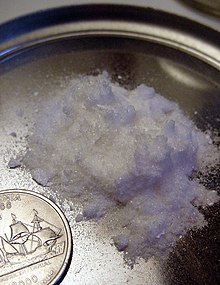https://en.m.wikipedia.org/wiki/Psychedelic_drug
Psychedelics are a class of hallucinogenic drugs whose primary effect is to trigger non-ordinary states of consciousness (known as psychedelic experiences or "trips").[2][3][4] This causes specific psychological, visual and auditory changes, and often a substantially altered state of consciousness.[5][6][3][7] The "classical" psychedelics, the psychedelics with the largest scientific and cultural influence, are mescaline, LSD, psilocybin, and DMT.[8][9][10][11]
Most psychedelic drugs fall into one of the three families of chemical compounds: tryptamines, phenethylamines, or lysergamides and many tend to act via serotonin 2A receptor agonism. When compounds bind to serotonin 5-HT2A receptors,[12] they modulate the activity of key circuits in the brain involved with sensory perception and cognition, however the exact nature of how psychedelics induce changes in perception and cognition via the 5-HT2A receptor is still unknown, although the fact that psychedelics reduce default mode network activity and increased connectivity between regions in the brain as a result is likely one of the most relevant pharmacological mechanisms underpinning the psychedelic experience,[13][14] particularly ego death.[15] The psychedelic experience is often compared to non-ordinary forms of consciousness such as those experienced in meditation,[16][3] mystical experiences,[17][7] and near-death experiences,[7] which also appear to be partially underpinned by altered default mode network activity.[18][19] The phenomenon of ego death is often described as a key feature of the psychedelic experience.[16][3][7]
Many psychedelic drugs are illegal worldwide under the UN conventions, with occasional exceptions for religious use or research contexts. Despite these controls, recreational use of psychedelics is common.[20][21] Legal barriers have made the scientific study of psychedelics more difficult. Research has been conducted, however, and studies show that psychedelics are physiologically safe and do not lead to addiction.[22][23] Studies conducted using psilocybin in a psychotherapeutic setting reveal that psychedelic drugs may assist with treating depression and alcohol addiction, and possibly also nicotine addiction.[24][25] Although further research is needed, existing results are showing that psychedelics may be useful for treating certain forms of psychopathology.[26][27][21]
